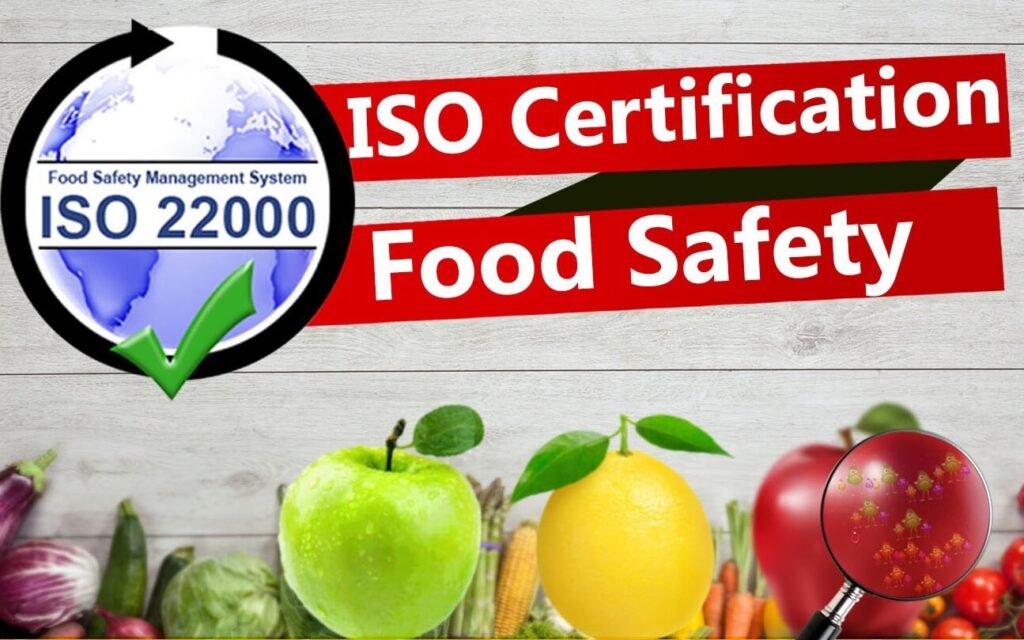What Is Food Safety ISO 22000?
ISO 22000 is an internationally recognized standard for establishing, implementing, maintaining, and continually improving the Food Safety Management System within an organization or company that is linked to the food industry. Regardless of the size, or products that they deal with, these industries in the food sector have a responsibility of ensuring that the food products that reach the end-users are free from any form of contamination.
Standards that are set by the ISO 22000 helps many different organizations in the identification and control of any potential food safety risks and hazards and at the same helps them to continually improve the Food Safety Management System (FSMS). This ISO standard applies to all the commercial producers and all parties involved at any level of the supply chain. Its main aim is to help global market traders to have a common standard that makes it possible and easier to move food products across borders of different countries.
ISO 22000 came into force in the year 2005 and covers some of the main elements that ensure food safety along the food chain. Some of the key elements covered in this internationally recognized include system management, communication, implementation, and continual review to improve the FSMS.

How was the Food Safety ISO 22000 Established?
This is one of the international standards that borrows a lot from other existing standards. The structure and its core requirements are all driven from some of the international standards that were already in place by the time it was being established. It borrows heavily from the prerequisite programs, Hazard Analysis and Critical Control Points (HACCP) principles, and other ISO systems such as ISO 9001. We have discussed this section in details in details on our homepage you can check it out to familiarize yourself with the principles and prerequisite programs that will feature in this entire article.
Food Safety ISO 22000 makes it possible for different organization to establish an FSMS that is specific to the organization and is cost-effective. It becomes even easier to improve the FSMS using results or performance parameters of FSMS measured. This standard ensures proper documentation of all the steps that are taken to achieve everything within an organization. Remember that the ultimate goal is to enhance food safety and open the global market for traders and suppliers in the food industry.
The Structure of ISO 22000
Once again, we will refer you to our homepage to learn everything that you need to know about the structure of this standard. To avoid duplicates, we are only going to write a summary of what we already have on that page.
Just like many other ISO standards such as ISO 9001 or ISO 14001, Iso 22000 uses high-level structure based on the Plan-Do-Check-Act (PDCA) and the Annex SL. The importance of this type of structure is the integration among different ISO standards without having to rework on the same processes that were already done when implementing ISO 22000.
When it comes to the implementation of this standard, organizations have a lot of flexibility, thanks to its structure. You can implement it as a standalone system or integrate it with the existing systems given that you still comply with the standards. Also, the standard itself offers a framework that you can follow to implement an effective FSMS that will be up to the standards right from the start without having to do many rounds of audits. If everything is done correctly, then you should not have problems during the certification process as everything will automatically match the set standards. But if you are not sure, then you can go ahead to contact us. ISO-Pros has professionals who will clarify everything and anything that is mossed here.
What are the benefits of ISO 22000?
This topic is dedicated to another page. However, we are going to highly some of the key benefits that this system brings to your organization and to the global market. When it was being established, there were issues at hand that were to be solved. That is where the benefits are derived from. Without saying much, take a look at the following benefits of complying to this standard:
We have defined what ISO 22000 is all about and highlighted some of its top benefits. What is left now? You guessed it right. You need to get certified to start taking advantage of this standard. Or, did you guess another thing? Let us know in the comment section.
Just like most of the section of this article, Food Safety ISO 22000 certification is discussed in another dedicated page. It is a broad topic that we cannot accommodate here. However, we are going to warm up your mind on what you should do to get certified.
There is an increase in demand for safe food both locally and internationally. The demand has even hiked during this period of COVID-19 Pandemic. This shows that you need to get certified more than ever before to compete favorably in the market. To get started, you need basic training on the requirements of this standard and how you can benefit from it. You can then proceed to apply for certification at ISO-Pros.
Why do you need to comply with ISO 22000?
It is not mandatory to comply, but you need to read the writing that is on the wall. No one specific will come to demand that you get certification for this international standard, but you will voluntarily do it given the market trends. Many articles headlines worldwide are about Food Safety Management System that is probably fueled by the alarming statistics on foodborne diseases and related deaths. You need to do it for your own safety and well-being of all other people who depend on the food products.

